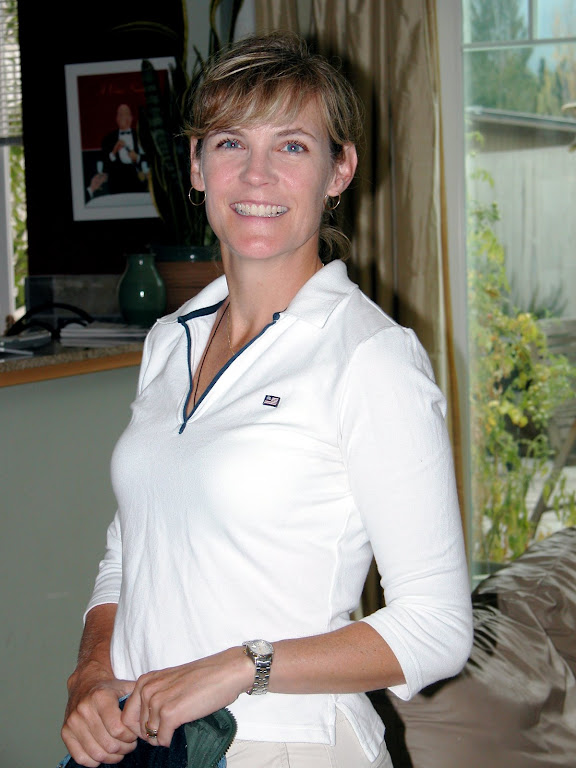I'm pretty sure this is what my mother had in mind when she admonished us to always tell the truth. It's easier on the memory.
This is a small experiment in the blogosphere. "If you have no interest in what it's like to grow old, what follows is not for you. However, if it's going to happen to you, and the outcome is ultimately going to be negative, then finding a way to make the process as bearable, even as enjoyable as possible, might be worth a little attention."—from John Jerome's On Turning Sixty-Five
30 September 2010
Telling the Truth
From George Neumayr in The American Spectator
27 September 2010
Funny T-Shirt Contest
Here is a possible entry. It is better if these are worn by members of the male persuasion, especially if you are a slow reader.
20 September 2010
Small Towns Cultivate Pro Athletes: Really?
How can that be? It doesn't seem to make much difference as to NFL, PGA, MLB etc. They all seem to show a remarkable and significant difference between towns of less than 50,000 and more than 5 million. I wonder if that would hold up when comparing say 50K and 500K? There aren't that many USA cities over 5M are there?
To the left is the article as it appeared this morning, 20 September, in the Sports Section of the Wall Street Journal.
When I try to remember back to my own childhood in a small town, <5K, in the 40s/50s in rural Wisconsin, I come up with memories of playing baseball all the warm months of the year and basketball all the cold months of the year. Maybe for a month or two in the fall we played tackle football without pads but this usually led to injuries so we would quickly switch to basketball. Adults were not present at our games until high school by which time we had seen and caught many thousands of hooking or fading wind-blown fly balls. On the other hand, most kids had fathers in the small town I grew up in. Even then we had a suspicion that if you didn't play catch with your dad at a young age, you probably were not cut out for baseball.
I'm not sure where this study was published but it surely was the most interesting article in the paper today. I doubt that the final answer is given here but it is interesting to think about possible answers.
To the left is the article as it appeared this morning, 20 September, in the Sports Section of the Wall Street Journal.
When I try to remember back to my own childhood in a small town, <5K, in the 40s/50s in rural Wisconsin, I come up with memories of playing baseball all the warm months of the year and basketball all the cold months of the year. Maybe for a month or two in the fall we played tackle football without pads but this usually led to injuries so we would quickly switch to basketball. Adults were not present at our games until high school by which time we had seen and caught many thousands of hooking or fading wind-blown fly balls. On the other hand, most kids had fathers in the small town I grew up in. Even then we had a suspicion that if you didn't play catch with your dad at a young age, you probably were not cut out for baseball.
I'm not sure where this study was published but it surely was the most interesting article in the paper today. I doubt that the final answer is given here but it is interesting to think about possible answers.
17 September 2010
15 September 2010
Ruffin Prevost Explores the Surreal World of Bear Management
A well-written article in today's Gazette, that is, Wednesday 15 Sep, caught my attention. Going along with the idea that the really interesting story is not the original piece of news but rather the media's reaction to that news, this nicely written mini-essay documents the story of a bear killing a botanist back in June and then the aftermath of the media trying to get some information on the case.
Prevost mentions all the players from local sheriff's offices to the highest reaches of our federal agencies specializing in supporting the grizzly world of the Greater Yellowstone eco-system. One wonders exactly how many people and how many bears are actually involved, and if those numbers move in synchronous ways.
This article reminded me of the popular NCIS series in which a prominent feature is always one federal agency grating on another's overlapping jurisdictions. Have a read.
Subscribe to:
Comments (Atom)
Downtown Phoenix

Downtown Phoenix in the Winter Time
Good Cheese Here

Vermont Cheddar & Minnesota Blue
TAKE TIME FOR PARADISE
Me and Joan

Early elderly and middle middle age: We May Know Something You Don't
Mrs America

Fortunately these girls had a good-looking mother
Rimrocks @ Billings MT

“In beholding old stones we may feel our anxieties about our achievements–and lack of them–slacken . . . Vast landscapes [and seascapes] can have an anxiety–reducing effect similar to ruins, for they are the representatives of infinite space, as ruins are the representatives of infinite time, against which our weak, short-lived bodies seem no less inconsequential than those of moths or spiders.”—Alain de Botton in Status Anxiety
Easter Sunday at St Patrick's Co-Cathedral

12 April 2009
Pleasant Hillside at Hustisford, AKA The Grassy Knoll for you conspiracy buffs

A Lot of Muellers Are Buried Here





